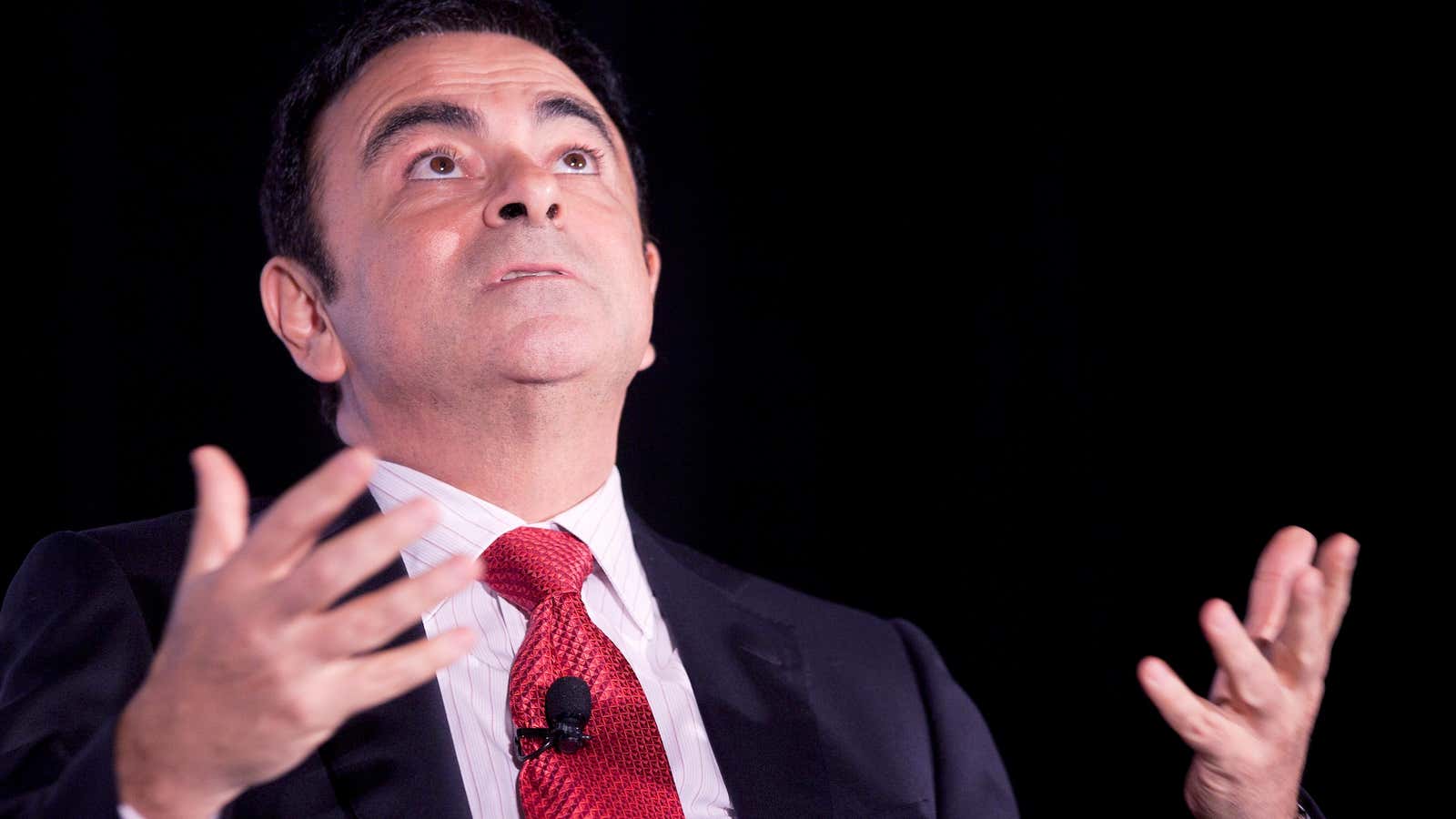Renault is one company experiencing the very worst aspects of doing business in Europe.
France’s second-biggest carmaker said its sales fell 6.3% in 2012 because its mid-range cars are finding fewer buyers in recession-plagued nations such as Spain and Italy.
And while Renault’s French sales plunged by a massive 25%, the company is also, because of France’s strong labor laws, struggling to cut its costs.
Renault said earlier this week that while it planned to eliminate 7,500 French jobs in the next four years, it would work with unions to ensure all the departures were voluntary and agreed not to shutter any French factories.
The car maker’s attempts to slim down in the face of Europe’s stubborn recession have drawn ire in France. There is a strong school of thought that the French government, which owns 15% of Renault, should prevent the company from cutting jobs.
Politicians have also used Renault’s woes to whip up support among a French populace that has been warmly supportive of a patriotic “buy-French” campaign (though not enough to buy more of Renault’s cars.)
Last February, months before France held its latest presidential election, Renault opened a large factory in Tangiers, Morocco, which quickly became a campaign issue. Euroskeptic conservative presidential candidate Nicolas Dupont-Aignan called the event (French) a “state scandal.”
“All the [French] presidential candidates speak of ‘buying French’, yet this [factory] inauguration unmasks the government’s double-speak,” he said.
Renault’s shareholders, of course, would presumably prefer the company to move as much of its production to low-cost countries as possible.
French President François Hollande has made it a priority to stem the loss of industrial jobs from France and last year castigated Peugeot for laying off workers. Yet protectionist European governments could be ushering in the demise of their car makers by pressuring them to use expensive local labor.
Sergio Marchionne, the chief executive of Fiat, said earlier this week he estimated European carmakers were collectively losing as much as €5 billion a year. Marchionne, who has consistently argued for widespread factory closures across Europe instead of programs such as gradual, voluntary redundancies, added: ”You can’t close a €5 billion gap in operating profit by tweaking the machine.”
